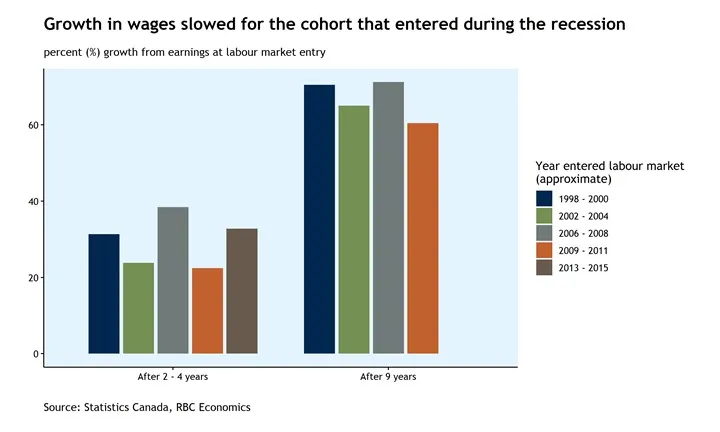African Travel & Tourism Sector Poised for Growth

African sector expected to grow 6.5% per year over the next decade
Kigali, Rwanda
At its Global Summit in Kigali today, the World Travel & Tourism Council (WTTC), in collaboration with VFS Global, revealed that the African Travel & Tourism sector could add US$168BN to the continent’s economy and create over 18 million new jobs.
Unlocking Opportunities for Travel & Tourism Growth in Africa
- Improving air infrastructure
- Facilitating visa processes
- Enhancing tourism marketing
The report, titled ‘Unlocking Opportunities for Travel & Tourism Growth in Africa’, emphasizes the need for three key policies to unlock annualized growth of 6.5%, reaching a contribution of more than US$350BN.
Significance of the African Travel & Tourism Sector
- In 2019, the sector contributed over US$186BN to the region’s economy.
- It welcomed 84 million international travelers.
- The sector provides livelihoods to 25 million people, accounting for 5.6% of all jobs in the region.
Julia Simpson, WTTC President & CEO, highlighted the sector’s remarkable transformation and its potential for further growth. She emphasized the importance of simplified visa processes, improved air connectivity within the continent, and effective marketing campaigns to showcase Africa’s diverse destinations.
Zubin Karkaria, Founder & CEO of VFS Global, expressed excitement about partnering with WTTC to uncover the extensive opportunities in Africa’s Travel & Tourism sector. He emphasized the commitment to support the development of travel and tourism in and from Africa.
Recovery and Opportunities for Africa
The report acknowledges the challenges faced by the Travel & Tourism sector in Africa, including the Global Financial Crisis, disease outbreaks, and political instability. However, it highlights the sector’s path to recovery.
According to the WTTC, 2023 is projected to be a year of near-full recovery, with levels only 1.9% below those of 2019. Additionally, it is expected to create nearly 1.8 million new jobs.
The report identifies strategic investments, improved connectivity, streamlined visa processes, adoption of low-carbon energy, and enhanced water efficiency as opportunities for sustainable growth, job creation, and economic development in Africa’s Travel & Tourism sector.
Access the Full Report
To access the full report, please visit WTTC Research Hub.
SDGs, Targets, and Indicators in the Article
1. Which SDGs are addressed or connected to the issues highlighted in the article?
- SDG 8: Decent Work and Economic Growth
- SDG 9: Industry, Innovation, and Infrastructure
- SDG 10: Reduced Inequalities
- SDG 12: Responsible Consumption and Production
- SDG 13: Climate Action
- SDG 16: Peace, Justice, and Strong Institutions
The article discusses the potential growth of the African Travel & Tourism sector, which is directly related to economic growth (SDG 8). It also mentions the need for improvements in air infrastructure and visa facilitation, which are connected to industry, innovation, and infrastructure (SDG 9). The sector’s contribution to employment and livelihoods addresses reduced inequalities (SDG 10). The article also highlights the importance of responsible consumption and production (SDG 12) and reducing the carbon footprint through low-carbon energy adoption (SDG 13). Lastly, the mention of political instability and the need for better policies implies a connection to peace, justice, and strong institutions (SDG 16).
2. What specific targets under those SDGs can be identified based on the article’s content?
- Target 8.9: By 2030, devise and implement policies to promote sustainable tourism that creates jobs and promotes local culture and products.
- Target 9.1: Develop quality, reliable, sustainable, and resilient infrastructure, including regional and transborder infrastructure, to support economic development and human well-being, with a focus on affordable and equitable access for all.
- Target 10.4: Adopt policies, especially fiscal, wage, and social protection policies, and progressively achieve greater equality.
- Target 12.2: By 2030, achieve the sustainable management and efficient use of natural resources.
- Target 13.3: Improve education, awareness-raising, and human and institutional capacity on climate change mitigation, adaptation, impact reduction, and early warning.
- Target 16.6: Develop effective, accountable, and transparent institutions at all levels.
Based on the article’s content, these targets can be identified as relevant to the issues discussed.
3. Are there any indicators mentioned or implied in the article that can be used to measure progress towards the identified targets?
- Indicator 8.9.1: Tourism direct GDP as a proportion of total GDP and in growth rate.
- Indicator 9.1.1: Passenger and freight volumes, by mode of transport.
- Indicator 10.4.1: Income growth per capita among the bottom 40% of the population.
- Indicator 12.2.1: Material footprint, material footprint per capita, and material footprint per GDP.
- Indicator 13.3.1: Number of countries that have integrated mitigation, adaptation, impact reduction, and early warning into primary, secondary, and tertiary curricula.
- Indicator 16.6.1: Primary government expenditures as a proportion of original approved budget, by sector (or by budget codes or similar).
These indicators can be used to measure progress towards the identified targets. The article mentions the contribution of the Travel & Tourism sector to GDP (Indicator 8.9.1), the need for improvements in air infrastructure (Indicator 9.1.1), the importance of reducing inequalities (Indicator 10.4.1), the focus on sustainable consumption and production (Indicator 12.2.1), the need for education and awareness on climate change (Indicator 13.3.1), and the importance of effective institutions (Indicator 16.6.1).
SDGs, Targets, and Indicators Table
| SDGs | Targets | Indicators |
|---|---|---|
| SDG 8: Decent Work and Economic Growth | Target 8.9: By 2030, devise and implement policies to promote sustainable tourism that creates jobs and promotes local culture and products. | Indicator 8.9.1: Tourism direct GDP as a proportion of total GDP and in growth rate. |
| SDG 9: Industry, Innovation, and Infrastructure | Target 9.1: Develop quality, reliable, sustainable, and resilient infrastructure, including regional and transborder infrastructure, to support economic development and human well-being, with a focus on affordable and equitable access for all. | Indicator 9.1.1: Passenger and freight volumes, by mode of transport. |
| SDG 10: Reduced Inequalities | Target 10.4: Adopt policies, especially fiscal, wage, and social protection policies, and progressively achieve greater equality. | Indicator 10.4.1: Income growth per capita among the bottom 40% of the population. |
| SDG 12: Responsible Consumption and Production | Target 12.2: By 2030, achieve the sustainable management and efficient use of natural resources. | Indicator 12.2.1: Material footprint, material footprint per capita, and material footprint per GDP. |
| SDG 13: Climate Action | Target 13.3: Improve education, awareness-raising, and human and institutional capacity on climate change mitigation, adaptation, impact reduction, and early warning. | Indicator 13.3.1: Number of countries that have integrated mitigation, adaptation, impact reduction, and early warning into primary, secondary, and tertiary curricula. |
| SDG 16: Peace, Justice, and Strong Institutions | Target 16.6: Develop effective, accountable, and transparent institutions at all levels. | Indicator 16.6.1: Primary government expenditures as a proportion of original approved budget, by sector (or by budget codes or similar). |
Copyright: Dive into this article, curated with care by SDG Investors Inc. Our advanced AI technology searches through vast amounts of data to spotlight how we are all moving forward with the Sustainable Development Goals. While we own the rights to this content, we invite you to share it to help spread knowledge and spark action on the SDGs.
Fuente: wttc.org

Join us, as fellow seekers of change, on a transformative journey at https://sdgtalks.ai/welcome, where you can become a member and actively contribute to shaping a brighter future.






